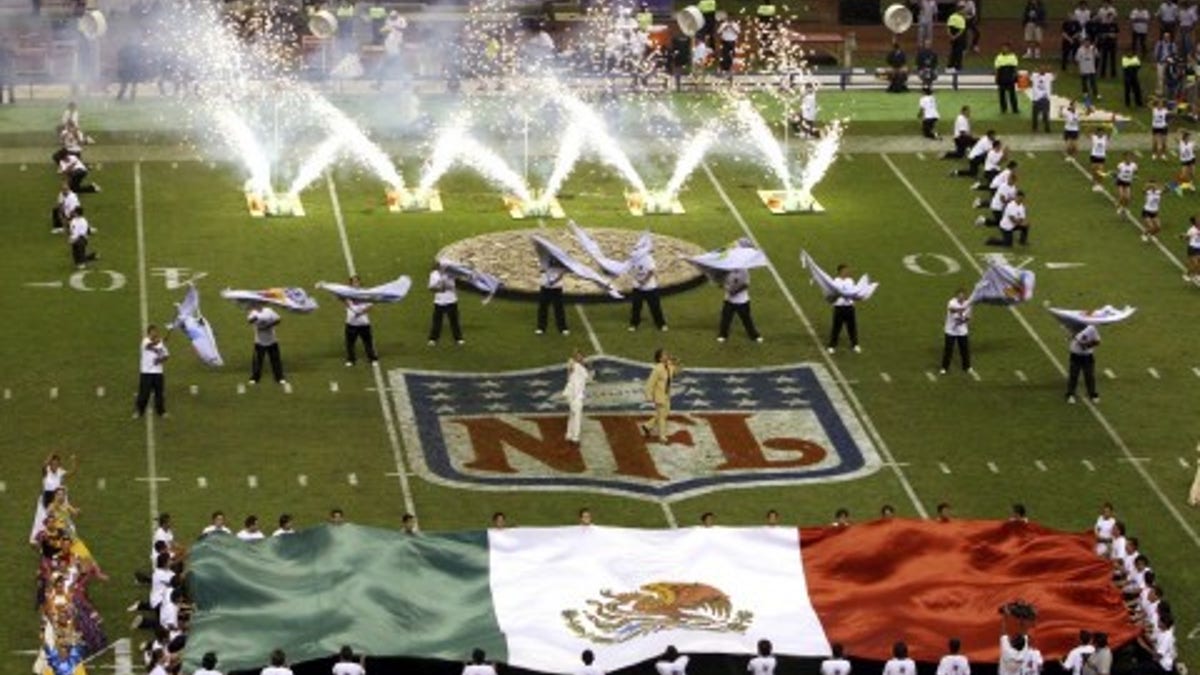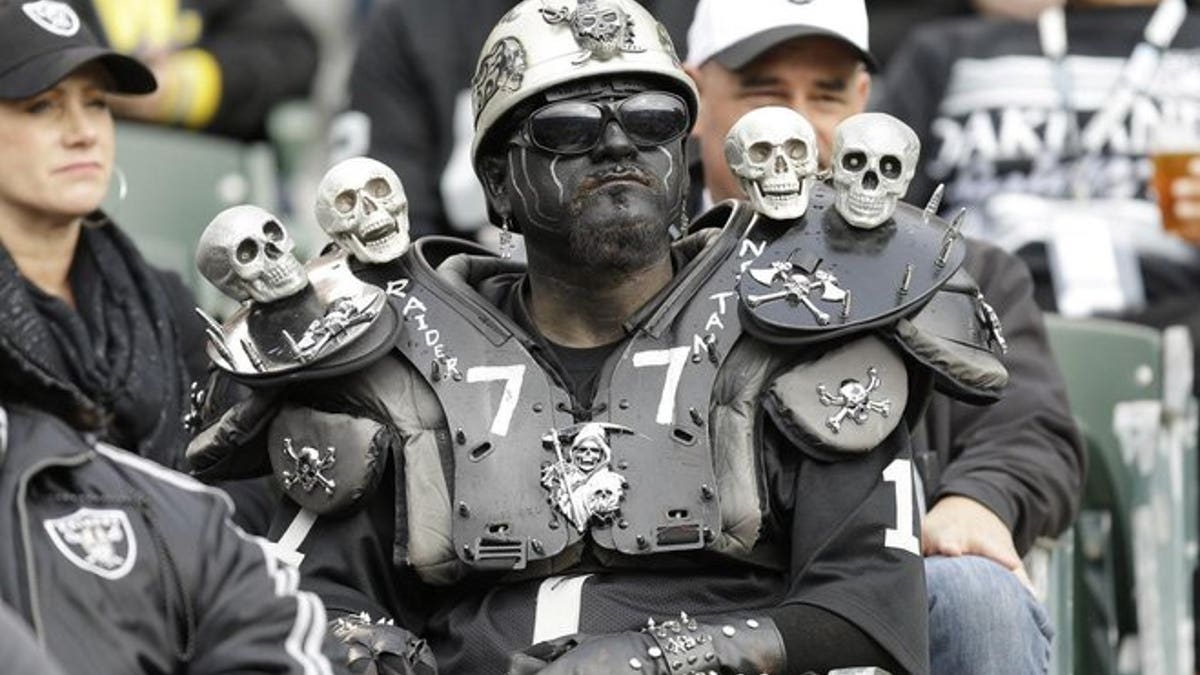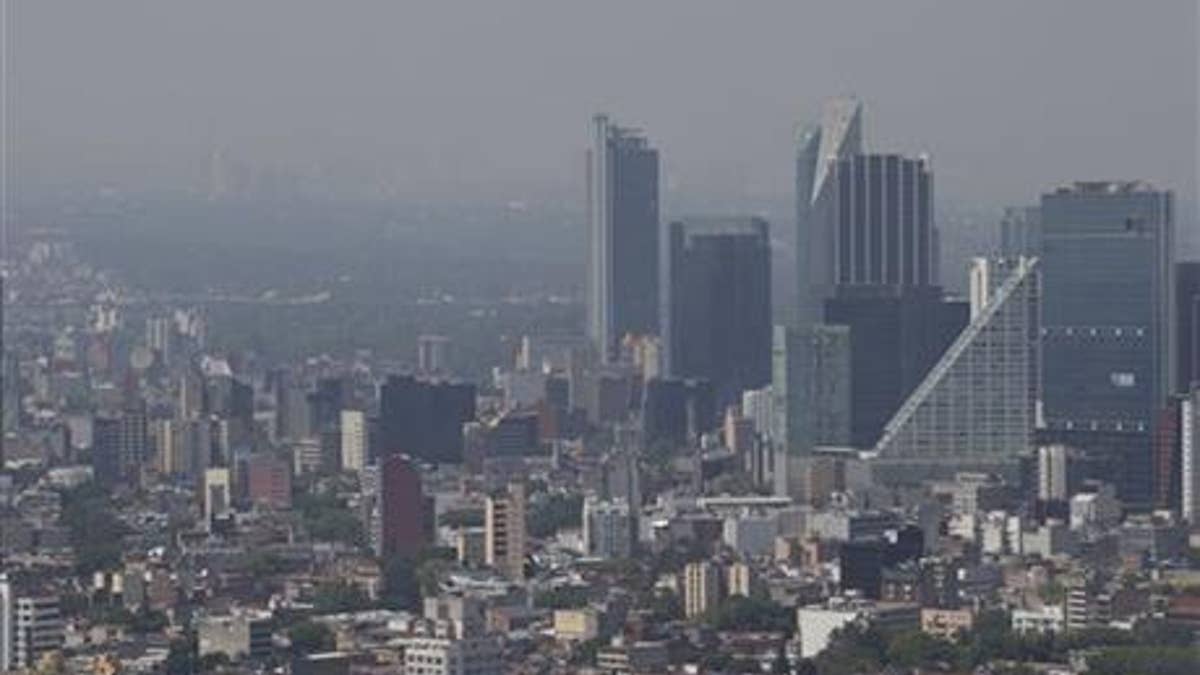
When the Oakland Raiders and Houston Texans face off Monday night in Mexico City’s Estadio Azteca, the teams will have to battle more than just their opponents come kick-off.
In the first NFL game in the country in more than 11 years, players and fans alike will have to contend with rampant street crime, simmering anger by many Mexicans over the election of Donald Trump, suffocating levels of smog and the bewildering effects of the stadium’s high altitude.
While the crime rate in Mexico City is a far cry from that in the northern part of the country, where drug cartels hold sway, the capital city has recently seen an uptick in homicides and other violent crimes.
Homicides in the city shot up by more than 20 percent last year to levels not seen since 1998 -- and in spite of more than $1 billion spent on public security in 2015, recent studies show that a third of Mexico City’s population was a victim of crime and two-thirds said they do not trust the local police.
The threat of violent crime caused Texans’ management to warn players not to leave the hotel during their trip south of the border.
According to The Associated Press, a section of a memo sent to Texans’ players under the heading "safety" had a bullet point with: "DO NOT leave the hotel." It was followed by a line advising players to leave all "expensive jewelry at home," not to bring large sums of money and not to use ATMs.
Raiders’ players did not receive any type of memo or written warning.

(The Associated Press)
Experts on Latin American security say that, despite the warning and statistics, so long as players and fans use common sense they should have very few problems in regards to their personal safety.
“Fans and players need to be aware and careful if they’re in Mexico City, but just as careful as they would be in any large city in the U.S,” Chris Wilson, the deputy director of the Mexico Institute at the Woodrow Wilson Center, told FoxNews.com. “The murder rate in the city is lower than Washington D.C.’s, so I don’t think it’s as big an issue as many people are making it out to be.”
Given the large presence of media from the United States covering the game, there is speculation that there could be demonstrations against the election of Donald Trump. During the president-elect’s trip to Mexico to meet with President Enrique Peña Nieto during his campaign, the city saw widespread protests and there is some concern of a repeat during the Monday Night Football game.
Jay Rothman, ESPN's vice president of production and the "Monday Night Football" producer, said that the channel is not planning to focus any anti-Trump protests, but if they occur they will cover them.
"We wear our news hats, too, and we will get together and discuss that," Rothman said. "If there are things outside and inside the stadium to cover, we would be criticized for ignoring them and we need to do the right thing.”
The biggest concern so far has not been crime or unrest, but the air in Mexico City – both in terms of its quality and how much of it the players will be breathing on the field.
Mexico City is notorious for the thick layer of smog that hangs over the town and can range from a minor nuisance to a nauseating presence depending on the weather, time of year and traffic on the street. While the city has seen improvements to its smog problems over the last decade thanks to catalytic converters being installed on cars and bans on driving during certain days, it can still pose a risk, especially to athletes hoping to perform at the top of their game.

(The Associated Press)
“The smog in Mexico City is not as bad as some of the cities in China,” said Wilson, who returned last week from a trip to the city. “It’s more like Los Angeles on a bad day.”
Mexico City’s government keeps hourly tabs on the air quality and as of early afternoon the section of the city where Estadio Azteca is located was deemed to be in good condition.
Besides the pollution, however, there is the lack of air that players will have to deal with during their time on the Mexican gridiron.
Sitting at an altitude of 7,380 feet, Estadio Azteca is 2,100-feet higher than Sports Authority Field at Mile High in Denver and both the Raiders and Texans play their home games at stadiums less than 50 feet above sea level.
“The altitude is a real concern for these players,” Jason Marczak, director of the Latin America Economic Growth Initiative at the Atlantic Council's Adrienne Arsht Latin America Center, told FoxNews.com. “For running backs, wide receivers, and other players that have to run a lot, it’s going to be a tough game.”
The Associated Press contributed to this report.








































